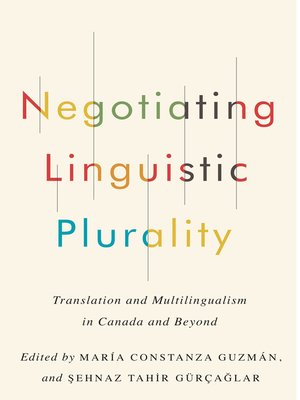Negotiating Linguistic Plurality
ebook ∣ Translation and Multilingualism in Canada and Beyond
By María Constanza Guzmán

Sign up to save your library
With an OverDrive account, you can save your favorite libraries for at-a-glance information about availability. Find out more about OverDrive accounts.
Find this title in Libby, the library reading app by OverDrive.



Search for a digital library with this title
Title found at these libraries:
| Library Name | Distance |
|---|---|
| Loading... |
Cultural and linguistic diversity and plurality are seen as markers of our time, linked to discourses about citizenship and cosmopolitanism in the context of economic globalization in the late twentieth century. It is often monolingualism, however, that informs understanding and policies regulating the relationship between languages, nations, and communities.
Grounded by the idea of language as lived experience, Negotiating Linguistic Plurality assumes linguistic plurality to be a continuing human condition and offers a novel transnational and comparative perspective on it. The essays featured cover concepts and praxis in which linguistic plurality surfaces in the public sphere through institutional and individual practices. The collection adopts a critical view of language policies and foregrounds distances and dissonances between policy and language practices by presenting lived experiences of multilingualism. Translation, seen as constitutive to the relations inherent to linguistic plurality, is at the core of the volume. Contributors explore a range of social and institutional aspects of the relationship between translation and linguistic plurality, foregrounding less documented experiences and minoritized practices.
Presenting knowledge that spans regions, languages, and territories, Negotiating Linguistic Plurality is a thoughtful consideration of what constitutes language plurality: what its limits are, as well as its possibilities.







